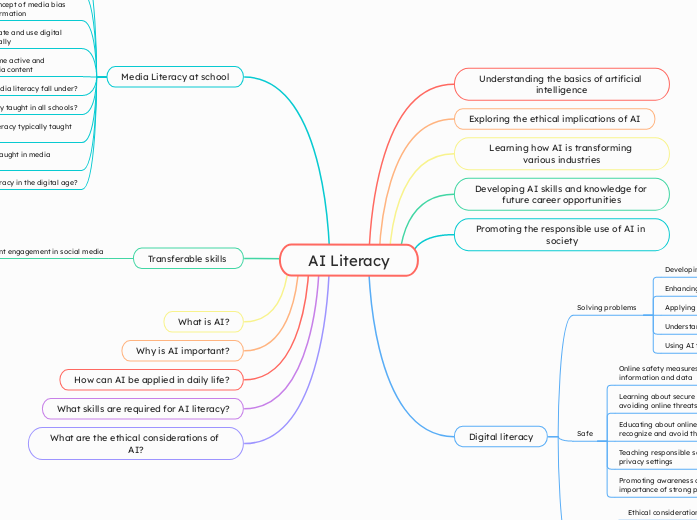AI Literacy
Understanding the basics of artificial intelligence
Exploring the ethical implications of AI
Learning how AI is transforming various industries
Developing AI skills and knowledge for future career opportunities
Promoting the responsible use of AI in society
Digital literacy
Solving problems
Developing critical thinking skills
Enhancing problem-solving abilities
Applying AI in problem-solving scenarios
Understanding the role of AI in problem-solving
Using AI tools to solve complex problems
Safe
Online safety measures for protecting personal information and data
Learning about secure browsing habits and avoiding online threats
Educating about online scams and how to recognize and avoid them
Teaching responsible social media usage and privacy settings
Promoting awareness of cybersecurity and the importance of strong passwords
Ethical
Ethical considerations in AI development and use
Teaching ethics as part of AI literacy education
Promoting ethical behavior in the digital realm
Addressing ethical dilemmas in the age of AI
Ensuring ethical decision-making in AI systems
Media Literacy at school
Teach students how to critically analyze and evaluate media sources
Incorporate lessons on fact-checking and identifying misinformation in the media
Introduce students to the concept of media bias and how it can influence information
Teach students how to navigate and use digital media responsibly and ethically
Encourage students to become active and informed consumers of media content
What subject does media literacy fall under?
Is media literacy taught in all schools?
What age group is media literacy typically taught to?
Are there any specific skills taught in media literacy?
How important is media literacy in the digital age?
Transferable skills
Student engagement in social media
Use appropriate digital tools
understand how to manage and regulate the use of technology
Use digital tools for research and data collection
Demonstrate and willingly learning new softwares
managing their digital footprints
